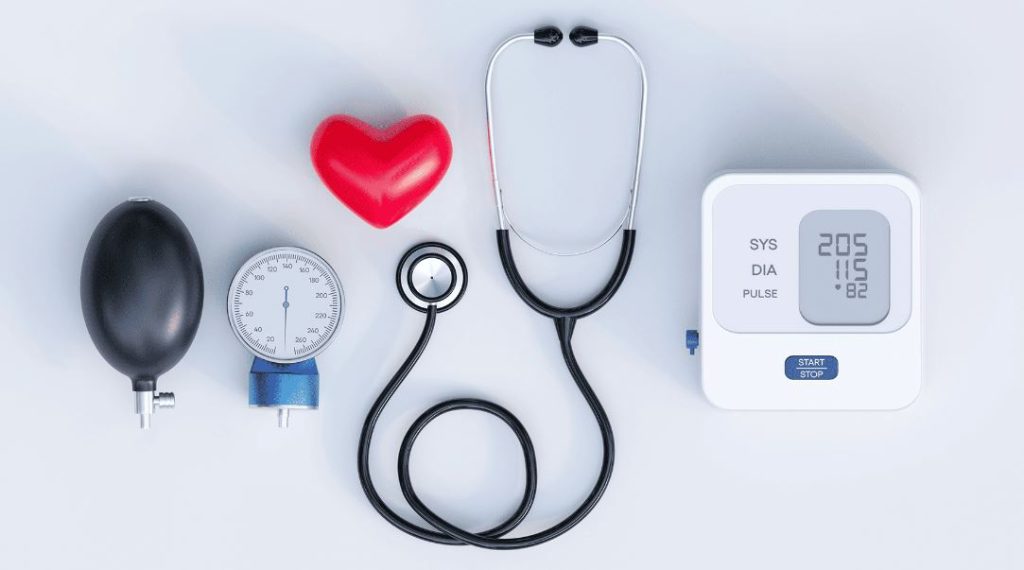Your cart is currently empty!
Hypertension Tea
Hypertension Tea
Hypertension Tea for High Blood Pressure

Hypertension Tea.
Benefit of Hypertension Tea
Hypertension Tea may lower blood pressure by promoting blood vessel relaxation and cardiovascular health.
High blood pressure, or hypertension, is a significant risk factor for various cardiovascular conditions, including heart disease, stroke, and heart attacks.
While high blood pressure is often treated with medication and lifestyle changes, natural options such as chamomile and hawthorn berry tea, can also play a role. Adding a couple cups of Hypertension Tea to your daily routine can be an easy and enjoyable way to help improve your cardiovascular health.
Hypertension is typically treated with heart-healthy lifestyle changes such as a healthy low-sodium diet and regular exercise. Medication to reduce blood pressure may also be needed.1
Some people also use supplements and other natural remedies to help manage blood pressure. For instance, research suggests that long leaf hypertension teas may help lower blood pressure.
The antioxidants found in tea have also been shown to relax blood vessels, which helps lower blood pressure. One meta-analysis showed regular green and black tea intake was associated with a 3.53 mmHg reduction in systolic blood pressure (SBP) and a 0.99 mmHg reduction in diastolic blood pressure (DBP).
A study built upon previous research showed that tea can help lower blood pressure. The researchers were looking for why tea has this effect.
The study found that two specific compounds affect a type of protein (called KCNQ5) found in the smooth muscle that lines blood vessels. Activating this protein causes the blood vessels to relax, creating better blood flow, which lowers blood pressure.
Tea also contains L-theanine, an amino acid that has been shown to lower blood pressure in people under stress, easing anxiety.
It’s worth noting that the ritual of brewing tea, then sitting and enjoying a cup, also has a relaxing effect that can reduce stress—another factor in lowering blood pressure.
This analysis and the studies within them had some limitations, and the results should be viewed as promising rather than conclusive.
The National Center for Complementary and Integrative Health acknowledges that some research supports green tea’s positive effects on blood pressure, but notes that many of the studies are inconclusive and limited.
Green tea contains caffeine. When looking at labels, be aware that only added caffeine is required to be listed; the naturally occurring caffeine in the green tea may not be noted.
A Swedish study following the health of 74,961 women and men over 10.2 years suggested that consuming four or more cups of black tea per day is associated with a lower risk of stroke.
Taking a medical history
Confirming high blood pressure by taking two or more readings at separate medical appointments
Performing blood tests (if necessary)
Monitoring your blood pressure by having you wear a blood pressure monitor to record readings over 24 hours or showing you how to take blood pressure readings at home
Remember, while natural remedies like Blood Cleansing tea can be beneficial, they should be approached thoughtfully and in conjunction with medical advice. Please notice that natural remedies like herbs and tea is not surrenal nor alternative treatment of medication, always take it as a supplement of medication.
Études is not confined to the past—we are passionate about the cutting edge designs shaping our world today.

1. Through Études, we aspire to redefine architectural boundaries and usher in a new era of design excellence that leaves an indelible mark on the built environment.
Our comprehensive suite of professional services caters to a diverse clientele, ranging from homeowners to commercial developers. With a commitment to innovation and sustainability, Études is the bridge that transforms architectural dreams into remarkable built realities.
2. Case studies that celebrate the artistry can fuel curiosity and ignite inspiration.

